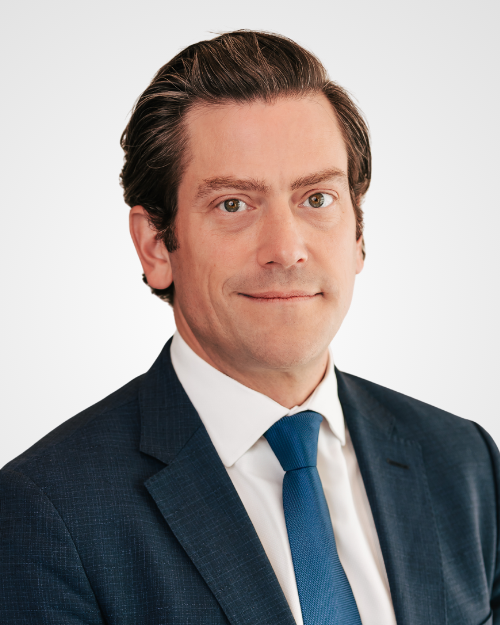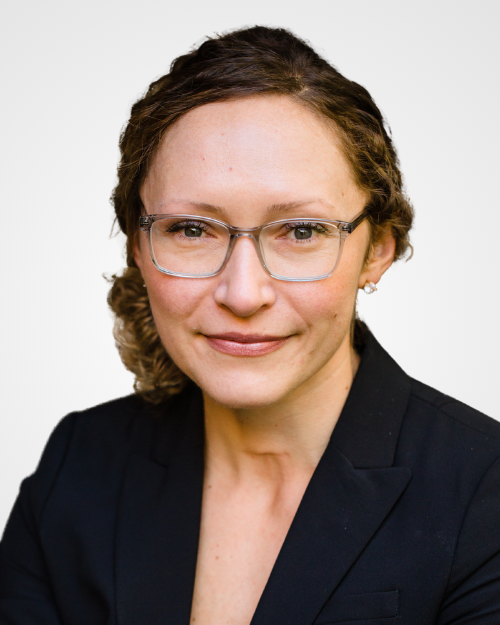While individual giving has fallen in recent years, comprising 64% of all philanthropic contributions in 2023, a significant percentage (88%) of those gifts came from a very narrow segment of individual donors (12%). The value of these leading contributions from a small group of donors underscores the importance of a strong major gifts strategy.
Successful major giving programs build relationships with people who share an affinity for an organization’s vision and have both the desire and ability to advance the organization’s mission. Yet nearly 60% of nonprofits report not having a major gift strategy and 68% do not have a dedicated major gift fundraiser on staff, according to a survey conducted by Bloomerang.

Whether your organization has an established major gifts program or is seeking to strengthen your pipeline of major donors, approaching donors as key stakeholders will establish the foundation for meaningful relationships while maximizing the opportunity for transformational contributions.
IDENTIFYING MAJOR DONORS
Every organization defines their own giving threshold for major donors based on their size, budget, and fundraising capacity. As CFA highlighted in an article about major donor cultivation strategies, some may consider $1,000 to be a significant gift and work to cultivate relationships that lead to that level of giving, while others may focus on gifts of $50,000+ as their target for nurturing deeper donor relationships.
CFA Managing Director Nathan Urbach brings 20 years of professional experience, which includes leading major giving programs and managing fundraising campaigns for large legacy arts and cultural institutions. Having achieved significant fundraising success by approaching donors as stakeholders in an organization’s future, Nathan now brings this experience to his work with a vast array of CFA clients.
According to Nathan, an organization’s most promising donors are already in its database and typically share the following characteristics:
- Passion for your organization’s work and mission
- Commitment to your organization with 3-5+ years’ giving history
- Demonstrated financial capacity and recent increases in giving
- Communicative and highly engaged, often serving as a board member or volunteer
Organizations can complete an analysis of their database on their own or work with a partner like CFA to discover opportunities within their existing donor pipeline. Once prospective major donors have been identified, the key is taking time to get to know them on a personal level to gain insights that will deepen the relationship and open up opportunities to invest in the future of the organization.
CULTIVATING & STEWARDING STAKEHOLDERS
Engaging in regular communication is key when cultivating and stewarding donors. As CFA shared in an article about recent trends impacting philanthropy, today’s donors and philanthropists are experiencing and responding to societal shifts in a variety of ways. “Despite external forces of change impacting the nonprofit sector, effective fundraising remains centered on relationship-building and authentic donor engagement.”
Acknowledging current levels of uncertainty, Nathan encourages organizations to take a thoughtful and strategic approach to communicating with donors. “In addition to 76 elections globally, plus our nation’s upcoming election, donors are also dealing with continued social unrest, inflation, and other world conflicts that are impacting domestic communities. These factors create additional calls to action that may redirect a donor’s attention. However, it is important to remember that your donors are still listening.”
- Bottom line: Organizations need to stay mission-focused, remaining present and strategically part of the noise while connecting their work to the broader issues at hand.
Nathan considers personal, yet professional, relationships with major donors absolutely essential for success. “While major giving begins and ends with an organization’s mission, connections mature thanks to meaningful relationships with those who fulfill the organization’s goals and priorities.” Nathan also encourages organizations to continually keep donors close, treating them as shareholders in the work through transparent communications. “Donors want to hear about the good, and they also want to hear about challenges. It’s important to remember that major donors care as much as we do and want the organization to succeed.”

By understanding what motivates a donor’s philanthropy and how they would like to engage, a gift officer can take an individualized approach to meeting their philanthropic interests and financial priorities by:
- Identifying personal factors and financial commitments that may impact a donor’s giving (e.g., children attending college or the sale of a business).
- Assisting major donors in exploring and implementing gift planning vehicles as appropriate (i.e. bequests, donor-advised funds, charitable remainder or lead trusts) to sustain or deepen their commitment based on changes to their financial situation.
- Identifying specific programs or priorities that align most closely with a donor’s philanthropic passions.
- Moving the conversation beyond the cycle of annual fund renewals to positioning a comprehensive, multi-year request that will expand the donor’s overall commitment by encompassing their annual gifts and a focused above-and-beyond investment.
SOLICITING TRANSFORMATIONAL GIFTS
Successful solicitations for transformational gifts should be highly tailored and personalized. In addition to leveraging organizational data and prospect research to inform an ask, transformational investments are the product of personal relationships and focused conversations that reveal critical insights validating the investment amount, timing, purpose, and giving vehicles. As Nathan shares, “Asking for a meaningful contribution should never come as a surprise to the donor. You’ve already shared the organization’s needs, what the investment will achieve, and identified the level and perimeters of investment that align with the donor’s interests and capacity.”

As stated in CFA’s Guide to the Major Gifts Cultivation Cycle, the request “should stretch the donor respectfully while also offering them the opportunity to dream big with the organization.” Once a request has been articulated, Nathan coaches his clients to stop talking and be ready to listen. “Whether the donor responds with a ‘yes’, ‘no’, or ‘not right now,’ the path to a stronger donor relationship requires a graceful, grateful response, and a willingness to learn, gathering insights that will keep the door open for future engagement.”
CFA IS HERE TO HELP!
Major giving is a long-term, relationship-building strategy that brings key donors to the inside of an organization’s work and impact while unlocking transformational investment opportunities that align with their philanthropic passions.
By approaching major donors as strategic shareholders, nonprofits can fully leverage the multifaceted return on investment generated by building strategic partnerships with their top shareholders. In addition to consistent, long-term support, major donors bring influence, connections, strategic guidance, and insights that can further advance the work and mission of the organizations they care deeply for. It is the culmination of these offerings that make major donors an irreplaceable asset to the organizations willing to dedicate the time and resources to engage them.
CFA supports organizations at every stage of the major gifts cultivation cycle. If you are interested in exploring how CFA can support your organization’s major giving strategy, contact CFA today to see how we can help.
Nathan Urbach, Managing Director
Nathan comes to CFA with 20 years of experience working with nonprofit organizations, primarily within the arts and culture sector. He is an ardent believer in the positive effects of engaging with his community and energizing others to achieve their goals.
Nathan’s most recent role was Vice President of Principal and Campaign Giving for the New York Philharmonic, where he previously served as Vice President of Inaugural Activities and Director of Development. During his tenure, Nathan led the planning efforts for the activities surrounding the grand opening of the new David Geffen Hall and successfully secured over $17 million in funding for two inaugural galas. In addition to his contributions to the New York Philharmonic, Nathan also served as the Interim Chief Advancement Officer at the New York Botanical Garden.
Before his involvement with these New York legacy institutions, Nathan served as an Executive Director at CCS Fundraising. In this capacity, he collaborated with noteworthy organizations such as the Vietnam Veterans Memorial Fund, Westport Library, Film at Lincoln Center, multiple Manhattan-based independent schools, and the Akilah Institute, a nonprofit college for women in Kigali, Rwanda. Across these roles, Nathan worked closely with organizational leadership and board members to manage fundraising campaigns ranging from $15 million to over $100 million, and he also strategically built and strengthened several principal giving programs.
Nathan’s career began with a role in the artistic department at the New York City Opera; since then, he has partnered with five of the 11 constituent organizations on the campus of Lincoln Center. Prior to transitioning into the fundraising field, he managed the Metropolitan Opera’s Lindemann Young Artist Program, where he collaborated with musical luminaries such as James Levine, Renata Scotto, Dame Kiri Te Kanawa, and Sir Thomas Allen.
Nathan has been a guest speaker at Opera America, the League of American Orchestras, NYU’s School of Professional Studies, and Columbia University. He serves on the Board of Old Westbury Gardens and is recognized as a distinguished alum of the Crane School of Music.
Nathan lives in New York City, where he is a collector of decorative arts and was featured on an episode of Homeworthy, a program dedicated to sharing stories of individuals and their homes. Outside of working with nonprofits, he is an avid traveler and enjoys reading and running.
Kendall Carlson, Content Writer
A frequent contributor to CFA’s digital content, Kendall Carlson has spent her career advancing nonprofit organizations across the Twin Cities. With 16 years of experience, Kendall brings a balance of strategic and operational leadership spanning fundraising, program development, evaluation, and strategic planning.
Most recently, Kendall served as Development and Communications Director at Hired, where she diversified revenue for the organization’s $11M budget and increased individual giving by 60%, led a rebrand, and launched an organization-wide data for impact initiative. Prior to Hired, Kendall served at Greater Twin Cities United Way, where she led an advancement strategy team to increase investment and engagement from the organization’s top corporate and major donors. Kendall is known as a strategic, solution-oriented leader with a high capacity for detail and commitment to quality. She launched her consulting practice, Luminate Consulting, in 2022 to bring her skills in fundraising and program strategy to nonprofits seeking sustainable growth.


